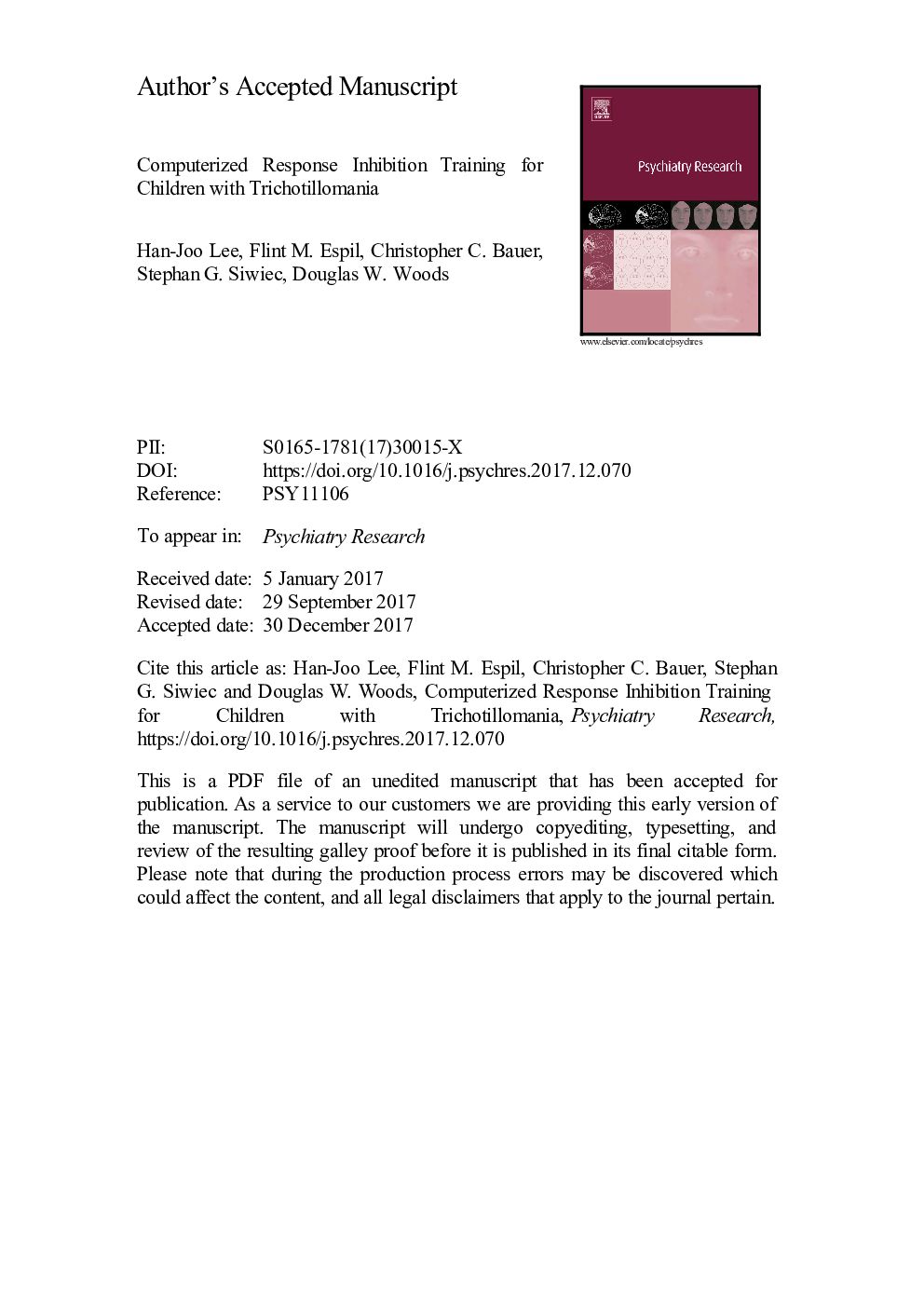| Article ID | Journal | Published Year | Pages | File Type |
|---|---|---|---|---|
| 6811491 | Psychiatry Research | 2018 | 33 Pages |
Abstract
Evidence suggests that trichotillomania is characterized by impairment in response inhibition, which is the ability to suppress pre-potent/dominant but inappropriate responses. This study sought to test the feasibility of computerized response inhibition training for children with trichotillomania. Twenty-two children were randomized to the 8-session response inhibition training (RIT; n = 12) or a waitlisted control (WLT; n = 10). Primary outcomes were assessed by an independent evaluator, using the Clinical Global Impression-Improvement (CGI-I), and the NIMH Trichotillomania Severity (NIMH-TSS) and Impairment scales (NIMH-TIS) at pre, post-training/waiting, and 1-month follow-up. Relative to the WLT group, the RIT group showed a higher response rate (55% vs. 11%) on the CGI-I and a lower level of impairment on the NIMH-TIS, at post-training. Overall symptom reductions rates on the NIMH-TSS were 34% (RIT) vs. 21% (WLT) at post-training. The RIT's therapeutic gains were maintained at 1-month follow-up, as indicated by the CGI-I responder status (= 66%), and a continuing reduction in symptom on the NIMH-TSS. This pattern of findings was also replicated by the 6 waitlisted children who received the same RIT intervention after post-waiting assessment. Results suggest that computerized RIT may be a potentially useful intervention for trichotillomania.
Related Topics
Life Sciences
Neuroscience
Biological Psychiatry
Authors
Han-Joo Lee, Flint M. Espil, Christopher C. Bauer, Stephan G. Siwiec, Douglas W. Woods,
